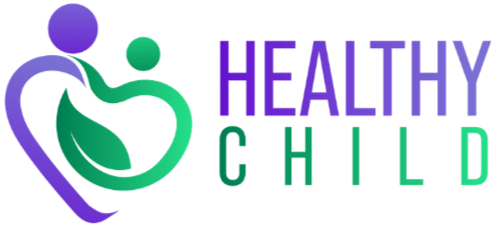Immune System Supplements for Children
Immune System Supplements for Children
Excerpt from FLU: Alternative Treatments and Prevention, Randall Neustaedter OMD, North Atlantic Books, 2005
For more in-depth information on boosting your child’s immune system, get our free e-book, Strengthen Your Child’s Immune System at CureChild
Children can take a few simple, specific supplements to maintain a strong and vital immune system during the fall and winter months when colds and flus predominate.
An omega-3 fat supplement in the form of fish oil capsules, DHA from algae (Neuromins), or cod liver oil will establish healthy cell membranes that prevent inflammation and resist toxins and attack by pathogens. 200 mg of DHA or one teaspoon of cod liver oil for each 50 pounds of body weight is an appropriate dose.
Vitamin E will ensure that fatty acids are maintained at optimum efficiency once they are absorbed into cells. In addition, vitamin E has anti-inflammatory effects and increases resistance to infection. Use only natural vitamin E (d-alpha-tocopherol), not the synthetic form (dl-alpha-tocopherol). A mixed tocopherol form of vitamin E is best because children need the gamma as well as the alpha forms. An appropriate dose is 100 mg for children under two and 200 mg for children aged 2-12.
Vitamin A is needed for proper mucous membrane function. It is essential for the growth and repair of body tissues, and for efficient digestion of protein. Vitamin A promotes good eyesight, strong bones and teeth, and a vital immune system. White blood cells, T-lymphocytes, and every cell in the important mucosal barriers of the respiratory, digestive, and urinary tracts require vitamin A. A diet containing significant amounts of fat will help ensure adequate vitamin A intake. Whole milk products, butter, and free range eggs will help maintain necessary levels of this important nutrient. Use organic sources. For those who may not be getting enough vitamin A, a supplement is essential. The recommended daily amount (RDA) of vitamin A is 1,000-2,000 IU for children, depending on their age (1,000 at one year of age, 2,000 by age nine). Primitive diets probably maintained 10 times that amount. One egg contains 300 IU, one cup of whole milk or whole milk yogurt contains about 225-250 IU of vitamin A. One tablespoon of butter contains 350 IU of A. The amount of vitamin A may vary by the season and the feed of the animals. Most children would benefit from a vitamin A supplement derived from fish oil. One tablespoon of cod liver oil contains at least 3,000 IU of A. Proper dosage is one teaspoon per 50 pounds of body weight. Several studies have also shown that vitamin A supplements during viral illnesses promote rapid recovery and prevent complications. Children can take 1,000 to 5,000 IU of vitamin A derived from fish oil without any problem.
Zinc stimulates immune function, prevents infections, and acts as a cofactor in many enzyme reactions, including the creation of antioxidants. Normal dosage is 10-20 mg. per day. If zinc supplementation is continued over a prolonged period of time, it should be given in conjunction with copper in a ratio of ten to one to prevent copper deficiency.
Vitamin C has anti-inflammatory effects, antioxidant activity, and antibiotic qualities. A daily supplement of vitamin C during the winter months will round out the immune system prevention program. Use 500 mg for children under 3 years old and 1,000 mg for older children.
The easiest way to give supplements to children is through powdered sources mixed in a blender with fruit, fruit juice, yogurt or milk (rice milk for younger children and children with milk sensitivities), and honey (for children over 12 months old). Capsules can be opened and dumped into the blender. Children can chew oil-based supplements in soft gels or you can stick a pin into them and squirt out the contents onto something they will eat.
Immune Supplements for Children-Daily Dosage
1- to 2-year-olds:
Cod liver oil – 1 tspn per 50 pounds body weight or DHA from algae (Neuromins) or fish oil – 100 mg
Colostrum – ½ teaspoon
Zinc – 10 mg
Copper – 1 mg
Vitamin E (d-alpha-tocopherol mixed tocopherols) – 100 IU
Vitamin C – 500 mg
3 to 12-year-olds:
Cod liver oil – 1 tspn per 50 pounds body weight or DHA from algae (Neuromins) or fish oil – 250 mg
Colostrum – 1 tsp
Zinc – 20 mg
Copper – 2 mg
Vitamin E (d-alpha-tocopherol or mixed tocopherols) – 200 IU
Vitamin C – 1,000 mg

